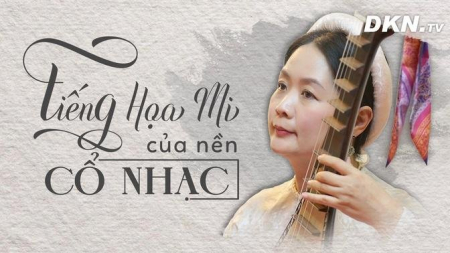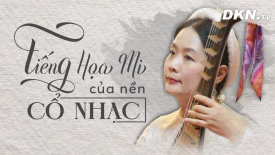IELTS là một trong những kỳ thi kiểm tra trình độ tiếng Anh phổ biến nhất trên thế giới nhằm đáp ứng cho nhu cầu học tập, làm việc và sinh sống ở các nước sử dụng tiếng Anh. Sở hữu một chứng chỉ IELTS với điểm số ấn tượng có thể giúp bạn tạo ấn tượng hơn với các nhà tuyển dụng. Kết quả của kỳ thi IELTS được công nhận bởi hơn 9000 tổ chức giáo dục, công ty và các tổ chức chính phủ trên gần 135 quốc gia.
Chuyên mục “Ngân hàng IELTS” đem đến cho bạn đọc những kiến thức, tài liệu, hướng dẫn hữu ích, mong muốn chia sẻ và đồng hành với người học trong suốt hành trình chinh phục IELTS.
***
Chúng ta bắt đầu học cụm từ bằng một số thành ngữ về gia đình:
You can use a FAMILY TREE to diagram the relationships among your family members. Your parents and siblings (brothers and sisters) are your IMMEDIATE FAMILY – and your EXTENDED FAMILY includes all your relatives – uncles, cousins, great-aunts, etc. A person who is related to you by a long series of connections can be called a DISTANT RELATIVE.
- family tree : cây phả hệ
- immediate family: gia đình ruột thịt
- extended family: đại gia đình
- distant relative: họ hàng xa

If you’re lucky, you have a loving family or a CLOSE-KNIT FAMILY – these expressions refer to a family that has good relationships, where everyone loves each other and helps each other. If you were raised in a loving family, then you probably had a CAREFREE CHILDHOOD – that means you had nothing to worry about when you were young. On the other hand, a family in which the relationships are bad or unhealthy can be called a DYSFUNCTIONAL FAMILY. If the children experience abuse, poverty, or problems with the law, we can say they had a troubled childhood.
- close-knit family: gia đình gắn kết khăng khít
- carefree childhood: tuổi thơ êm đềm
- dysfunctional family: gia đình bất hòa
Perhaps the parents went through a BITTER DIVORCE – that means a separation in which there were bad/angry feelings between the husband and wife. It’s also possible to have a MESSY DIVORCE, with a prolonged legal battle involving lots of conflicts about the separation of the former couple’s assets (money and possessions). The decisions about the separation of assets are made in the DIVORCE SETTLEMENT. A family in which there are divorces or separations is sometimes called a BROKEN HOME.

- bitter divorce: cuộc ly dị cay đắng
- messy divorce: cuộc ly hôn tranh chấp
- divorce settlement: quá trình giải quyết ly hôn
- broken home: gia đình đổ vỡ
Sometimes the mother and father fight over CUSTODY OF THE CHILDREN – that refers to who has the primary responsibility of caring for the kids. A judge can GRANT JOINT CUSTODY – that means the exhusband and ex-wife share the responsibility – or SOLE CUSTODY to only one parent. For example, a judge might award SOLE CUSTODY to the mother, and the father has to pay child support – regular payments to help with expenses for the kids. If it was a MUTUAL DIVORCE/SEPARATION – that means the ex-husband and ex-wife agreed to separate without fighting – then they will probably STAY ON GOOD TERMS WITH EACH OTHER (meaning to have a polite relationship without conflicts).
- custody of the children: quyền trông nom con
- grant joint custody: cấp quyền nuôi chung
- sole custody: quyền nuôi con duy nhất
- mutual divorce/separation: ly hôn hoặc ly thân
- stay on good terms with each other: vẫn giữ quan hệ tốt với nhau
If a woman GETS PREGNANT without being married or in a relationship, then she will become a SINGLE MOTHER. Some women in this situation choose to HAVE AN ABORTION, and others prefer to GIVE THE BABY UP FOR ADOPTION. The time when the baby is planned to arrive is called the due date – you can also say the baby is due in mid-October, for example. After the woman has the baby (or GIVES BIRTH to the baby), the baby is given to the ADOPTIVE PARENTS, who will raise the child or bring up the child as if it was their own. Sometimes, when the ADOPTED CHILD is older, he or she tries to find their BIRTH MOTHER (biological mother).

-
- gets pregnant: mang thai
- single mother: bà mẹ đơn thân
- have an abortion: mang thai
- give baby up for adoption: đưa con cho người khác nuôi
- gives birth: sinh con
- adoptive parents: cha mẹ nuôi
- adopted child: con nuôi
- birth mother: mẹ đẻ
Tham khảo 1000 English Collocations in 10 Minutes a Day
 Đại Kỷ NguyênTin tức thời sự quốc tế cập nhật 24/7, văn hoá truyền thống
Đại Kỷ NguyênTin tức thời sự quốc tế cập nhật 24/7, văn hoá truyền thống



































































































